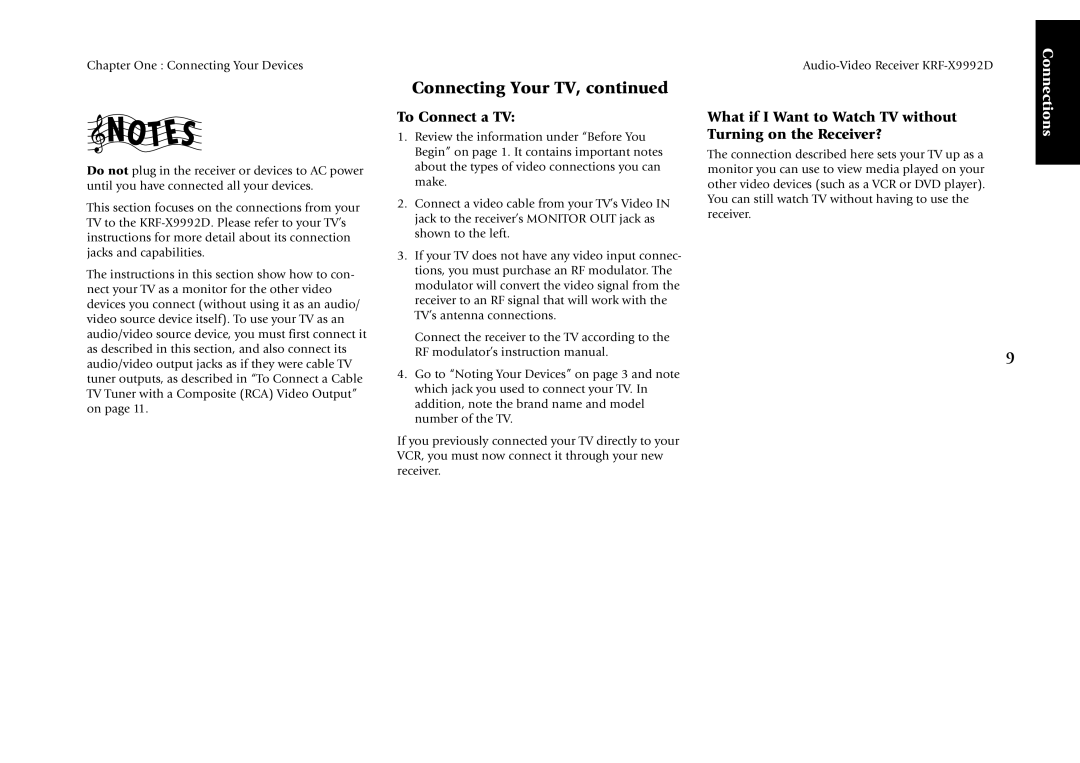
Chapter One : Connecting Your Devices
Do not plug in the receiver or devices to AC power until you have connected all your devices.
This section focuses on the connections from your TV to the
The instructions in this section show how to con- nect your TV as a monitor for the other video devices you connect (without using it as an audio/ video source device itself). To use your TV as an audio/video source device, you must first connect it as described in this section, and also connect its audio/video output jacks as if they were cable TV tuner outputs, as described in “To Connect a Cable TV Tuner with a Composite (RCA) Video Output” on page 11.
Connecting Your TV, continued
To Connect a TV:
1.Review the information under “Before You Begin” on pageÊ 1. It contains important notes about the types of video connections you can make.
2.Connect a video cable from your TV’s Video IN jack to the receiver’s MONITOR OUT jack as shown to the left.
3.If your TV does not have any video input connec- tions, you must purchase an RF modulator. The modulator will convert the video signal from the receiver to an RF signal that will work with the TV’s antenna connections.
Connect the receiver to the TV according to the RF modulator’s instruction manual.
4.Go to “Noting Your Devices” on pageÊ 3 and note which jack you used to connect your TV. In addition, note the brand name and model number of the TV.
If you previously connected your TV directly to your VCR, you must now connect it through your new receiver.
Audio-Video Receiver KRF-X9992D
What if I Want to Watch TV without Turning on the Receiver?
The connection described here sets your TV up as a monitor you can use to view media played on your other video devices (such as a VCR or DVD player). You can still watch TV without having to use the receiver.
9
Connections
